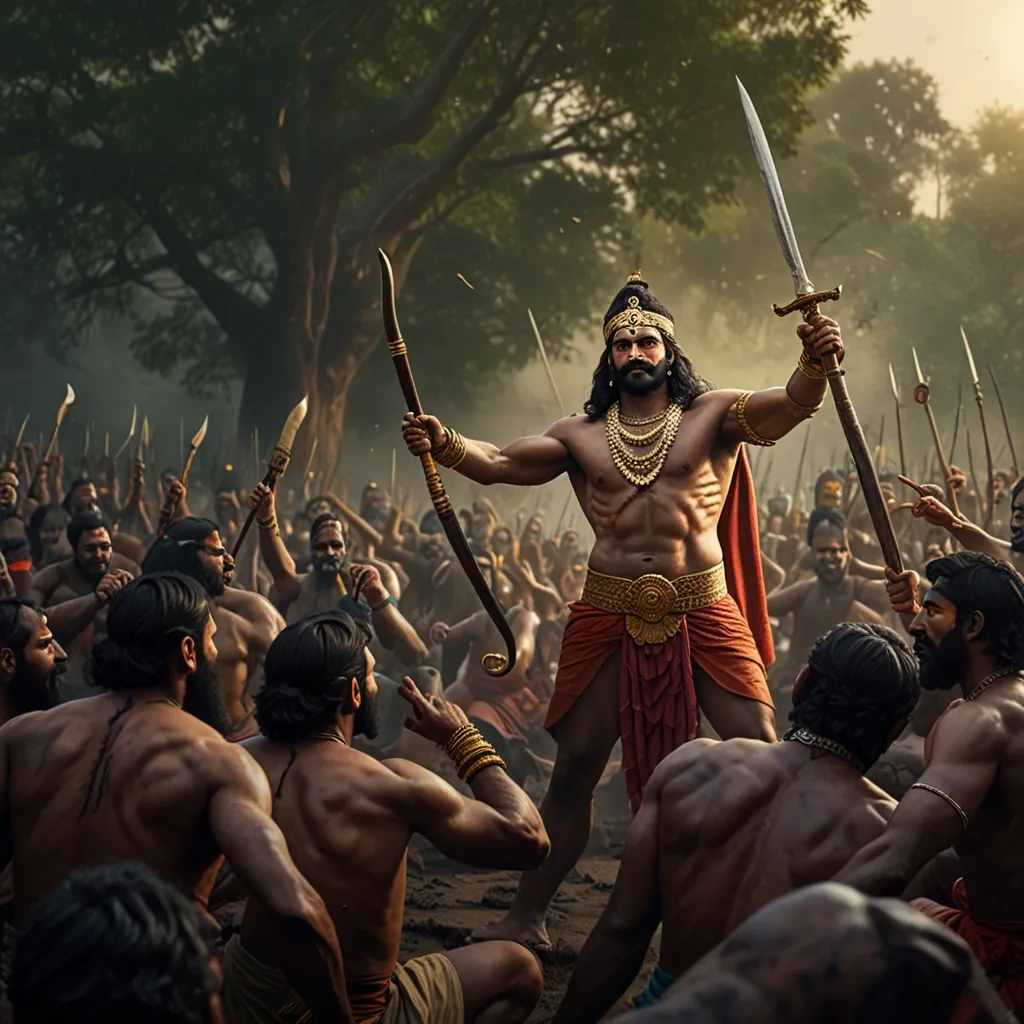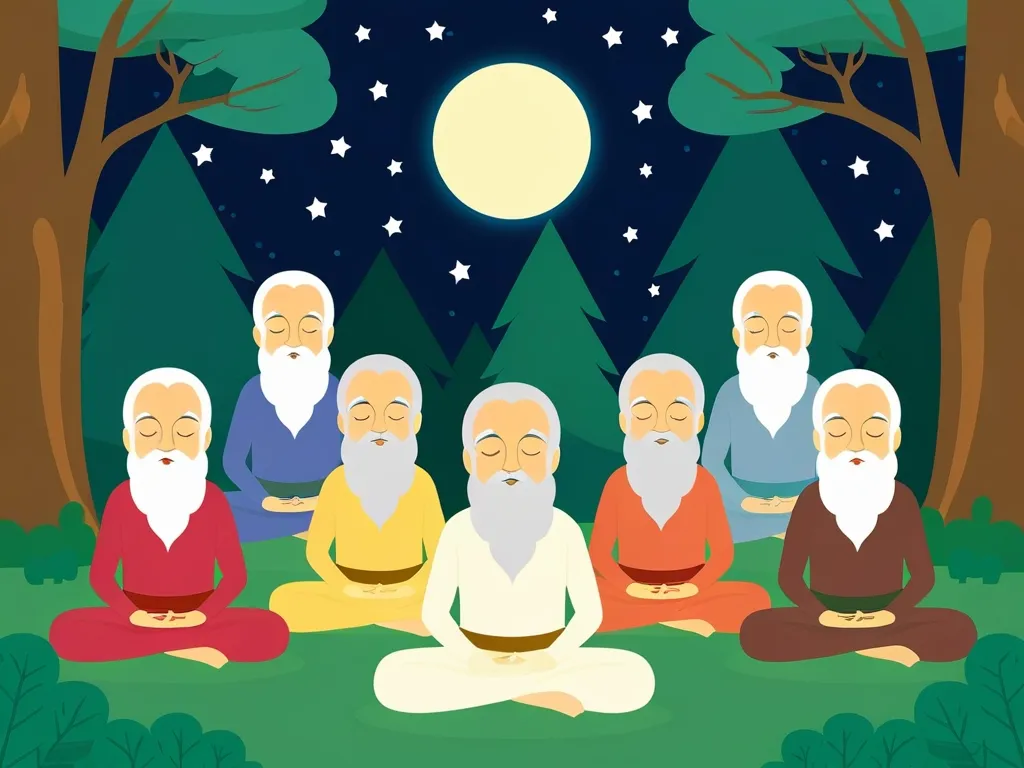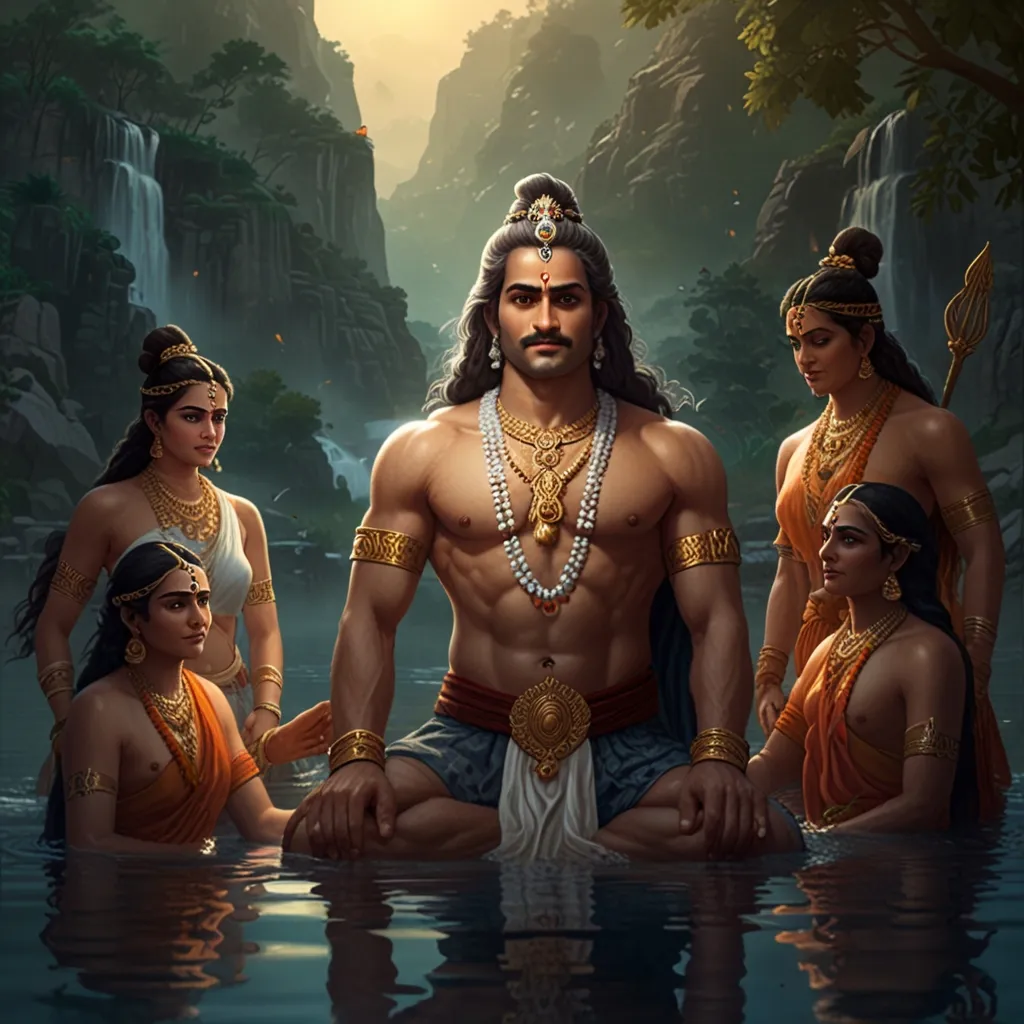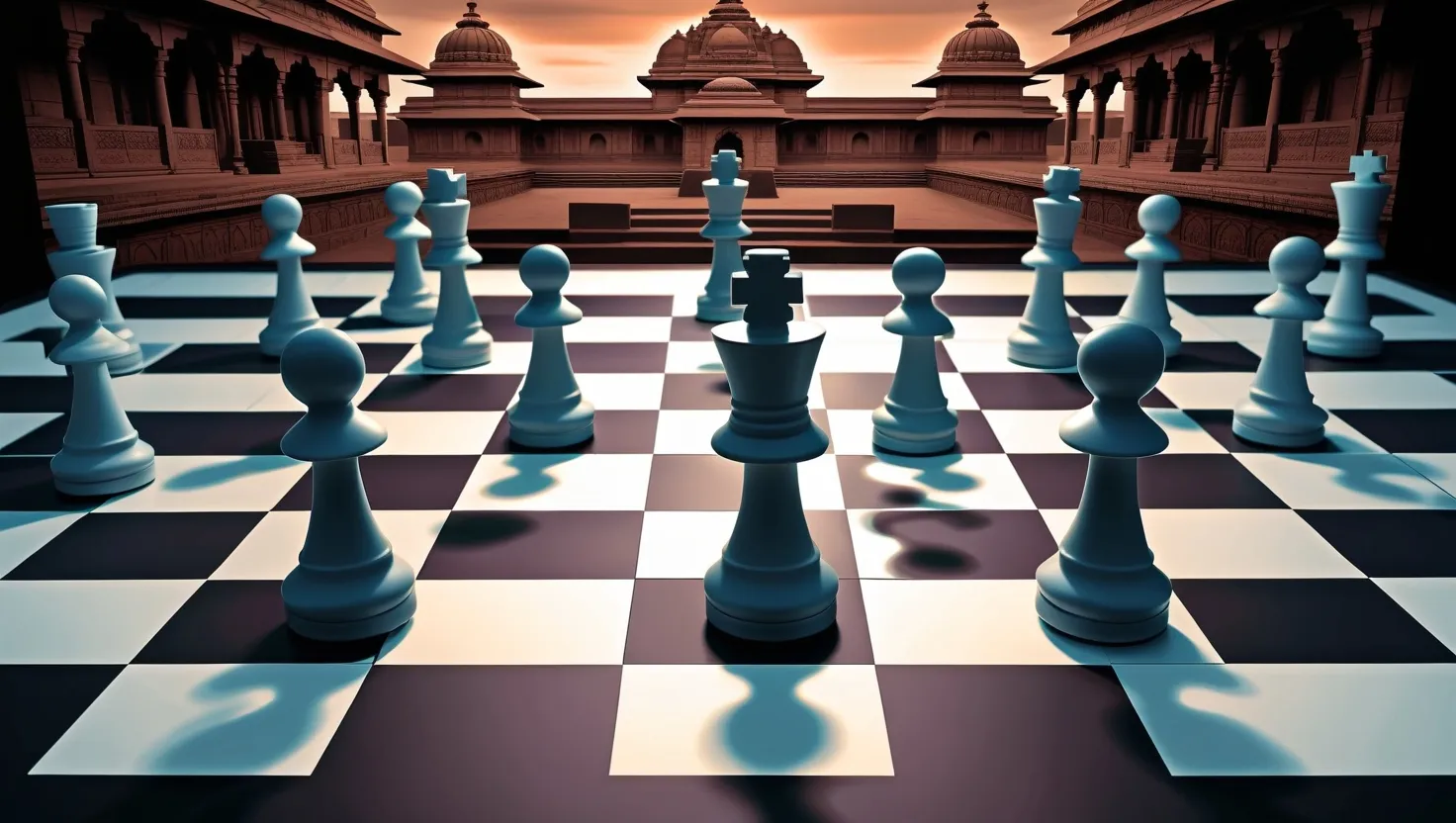In the grand saga of the Mahabharata, the plot to kill Bhima by Duryodhana stands out as a turning point, packed with envy, strength, and determination. Duryodhana, with his burning jealousy, couldn’t stand Bhima’s strength and decided that eliminating him was the only way to ensure his future.
Duryodhana, the eldest son of King Dhritarashtra, always felt cheated out of his birthright. Though he was the firstborn, his father’s blindness made his claim to the throne shaky. This fueled his resentment towards the Pandavas, especially Bhima – the mighty Pandava known for his mind-boggling strength and playful tormenting of his cousins. By yanking their hair, dunking them underwater, or shaking trees to make them fall, Bhima became a constant thorn in Duryodhana’s side.
Deciding that Bhima needed to go, Duryodhana schemed to poison him and make it look like an accident. He invited the Pandavas to a splendid palace called Pramanakoti, gloriously perched on the banks of the Ganges. This place was tailor-made for enjoyment and water sports, a perfect setup for Duryodhana’s plan. During a picnic, Duryodhana served a poisoned delicacy to Bhima, who, without suspecting anything, gobbled it down.
Soon after, Bhima felt drowsy. Seizing the moment, Duryodhana tied Bhima with creepers and vines and tossed him into the Ganges. Bhima sank to the depths, landing in the realm of the Nagas, the river’s serpent inhabitants. Recognizing Bhima’s noble lineage, the Nagas took pity on him. They detoxified his body and gave him a nectar that boosted his strength even more. Surging back to life, Bhima returned, more powerful than ever, much to Duryodhana’s chagrin.
This incident widened the rift between Bhima and Duryodhana, setting the stage for their ultimate showdown. Bhima wasn’t just muscles, though; his resolve and loyalty to his brothers were unbreakable. He became an essential figure in the climactic Battle of Kurukshetra, where his strength and spirit were crucial in vanquishing the Kauravas.
On the 15th day of the war, Bhima faced Duryodhana. Though victorious, he suffered a deep sorrow over his son Ghatotkacha’s death at Karna’s hands. This moment was a mix of victory and heartache. The next day saw Bhima dueling Karna in archery, leaving the fight unresolved. Nonetheless, he wrecked havoc on the Kaurava forces, mowing down thousands, defeating Shakuni, and forcing Duryodhana to flee under a rain of arrows.
One unforgettable episode was Bhima’s brutal retaliation against Dushasana, Duryodhana’s brother, right in front of Duryodhana and Karna. Bhima tore Dushasana apart and smeared Draupadi’s hair with his blood, fulfilling his vow to avenge her humiliation.
Eighteen days into the war, the final showdown between Bhima and Duryodhana took place. Emerging from hiding beneath a lake, Duryodhana faced Bhima in a fierce mace duel. Though Duryodhana’s skill was formidable, Bhima’s raw power, combined with a strategic nudge from Krishna, clinched the fight. Bhima smashed Duryodhana’s thigh, a decisive and symbolic move that carved his oath into reality.
Following the war, Bhima was appointed commander-in-chief of Hastinapura by Yudhishthira. But as the Kali Yuga loomed, Bhima and his brothers renounced their worldly lives, embarking on a last pilgrimage to the Himalayas. One by one, the Pandavas fell during this journey because of their personal flaws. Bhima, known for his gluttony and boastfulness, was the second to fall. Yudhishthira explained his failure to reach heaven stemmed from these weaknesses.
Bhima’s life is a dazzling tale of might, endurance, and unswerving loyalty. Despite the various plots against him and the hurdles he faced, Bhima stood as an unshakable pillar for his family, an emblem of bravery amidst overwhelming odds. His saga continues to captivate and inspire, teaching us that unyielding character and determination are key to overcoming life’s toughest battles.
In this roller-coaster of valor and vengeance, Bhima’s journey vividly illustrates the eternal clash between good and evil, strength and cunning, and ultimately, the power of unwavering loyalty and resolve. Even today, Bhima’s story resonates, reminding us that true strength lies not just in muscle, but in the heart and spirit.






